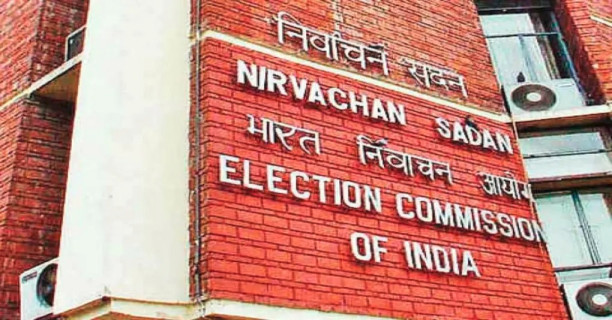In a significant move aimed at fortifying the integrity of the electoral process, the Election Commission of India (ECI) has issued a firm directive to the West Bengal government, urging it to grant full financial and administrative independence to the Chief Electoral Officer’s (CEO) office. The communication, sent to Chief Secretary Manoj Pant by ECI Under Secretary Ashutosh M, emphasizes the need to delink the CEO’s functions from the state’s Home Department, especially with the Assembly elections scheduled for next year.
Delinking for Neutrality
The ECI’s communication underscores that the current arrangement, where the CEO’s office operates under the Home Department, compromises the neutrality of the electoral process. “The financial and administrative autonomy of the CEO is currently limited. Being under the Home Department compromises the neutrality of the electoral process. A separate, autonomous election department must be created,” the ECI stated in its letter.
Currently, the CEO’s office is categorised as a subordinate branch of the Home & Hill Affairs Department, led by a Principal Secretary-level officer, despite the CEO holding an Additional Chief Secretary (ACS) rank. Furthermore, the CEO’s office functions with restricted financial powers, relying on a minor permanent advance from the Finance Department.
Key Directives for Administrative Overhaul
To rectify these limitations and ensure robust institutional independence, the ECI has mandated several immediate actions from the state government:
Creation of a Separate Election Department: The ECI has called for the establishment of a dedicated Election Department, entirely independent of any other state government department. This new department should have its own dedicated budget head.
Enhanced Financial Powers for CEO: The Commission has directed that the CEO be granted financial powers on par with an ACS, Principal Secretary, or Secretary of other departments.
Appointment of Financial Advisor: A separate Financial Advisor is to be posted within the new Election Department to assist the CEO in effectively discharging financial duties.
These measures, according to the ECI, are crucial for facilitating the “full financial and administrative autonomy to the CEO, as required for the effective and impartial conduct of elections.”
Filling Vacancies and Political Undercurrents
In addition to structural changes, the ECI has also instructed the West Bengal government to fill four vacant posts of additional, joint, and deputy CEOs in consultation with the Commission.
This directive from the poll panel comes amidst an ongoing controversy surrounding the special intensive revision (SIR) of electoral rolls in the state. While the ECI’s move is framed as a step towards ensuring fair elections, it has drawn various reactions from the political spectrum in West Bengal.
Political Reactions in West Bengal
The ruling Trinamool Congress (TMC) has, in the past, expressed strong reservations about the Special Intensive Revision (SIR) of electoral rolls, with Chief Minister Mamata Banerjee reportedly stating that SIR would not be implemented in Bengal and even threatening to “gherao” the Election Commission if needed. This backdrop suggests that the ECI’s push for greater independence of the CEO’s office could be viewed with a degree of caution by the state government, potentially sparking a fresh political debate about central intervention versus state autonomy.
Conversely, opposition parties, including the BJP and the Left Front, are likely to welcome the ECI’s directive, viewing it as a necessary step to ensure impartiality and prevent any undue influence of the state administration on the electoral machinery. They have often voiced concerns about the fairness of elections under the current administrative setup. The move is expected to intensify the political discourse in the state as parties gear up for the upcoming Assembly elections.


